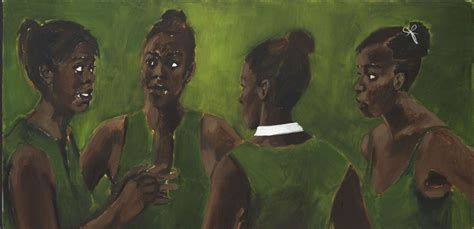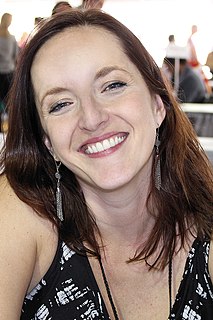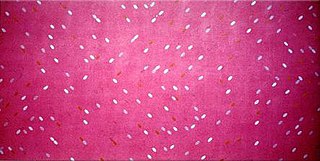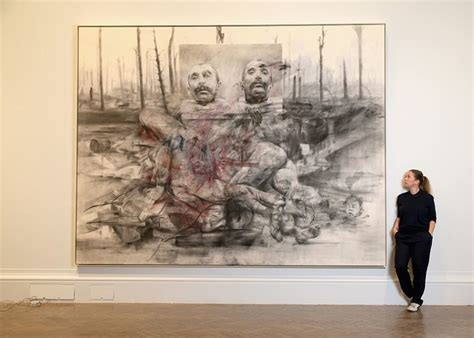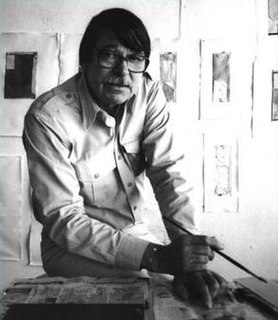A Quote by A. S. Byatt
I like to write about painting because I think visually. I see my writing as blocks of color before it forms itself. I think I also care about painting because I'm not musical. Painting to me is not a metaphor for writing, but something people do that can never be reduced to words.
Related Quotes
Painting from life was incredibly important for me because it allowed me to train my eyes to see everything that is there. But I realized early on that painting from life wasn't something that I was all that invested in. I was always more interested in the painting than I was the people. For me, removing that as a compulsion offered me a lot more freedom to actually paint and think about color, form, movement, and light.
All that stuff about flatness - it's this idea that painting is a specialized discipline and that modernist painting increasingly refers to painting and is refining the laws of painting. But who cares about painting? What we care about is that the planet is heating up, species are disappearing, there's war, and there are beautiful girls here in Brooklyn on the avenue and there's food and flowers.
There are absences, but there are also presences. It's about how painting can evolve its own abstractions. I didn't know the painting was going to be about that, but it has to have that journey; I have to learn something, I have to end up somewhere I didn't expect to be, otherwise, I don't think it's painting.
You have bits of canvas that are unpainted and you have these thick stretcher bars. So you see that a painting is an object; that it's not a window into something - you're not looking at a landscape, you're not looking at a portrait, but you're looking at a painting. It's basically: A painting is a painting is a painting. And it's what Frank Stella said famously: What you see is what you see.
When I am in a painting, I'm not aware of what I'm doing. It is only after a sort of 'get acquainted' period that I see what I have been about. I have no fears about making changes, destroying the image, etc, because the painting has a life of its own. I try to let it come through. It is only when I lose contact with the painting that the result is a mess. Otherwise there is pure harmony, an easy give and take, and the painting comes out well.
Writing a short story is like painting a picture on the head of a pin. And just getting everything to fit is - sometimes seems impossible. Writing a novel, though, is - has its own challenges of scope. And I think of that as painting a mural, where the challenge is that if you are close enough to work on it, you're too close to see the whole thing.
I'm not anti conceptual art. I don't think painting must be revived, exactly. Art reflects life, and our lives are full of algorithms, so a lot of people are going to want to make art that's like an algorithm. But my language is painting, and painting is the opposite of that. There's something primal about it. It's innate, the need to make marks. That's why, when you're a child, you scribble.
In fine arts, when you make a painting, it's just a painting. But if you make a painting in the entertainment industry, it can be an album cover or a t-shirt or a logo. I like that entertainment has this usefulness - that it's ultimately trying to make a bunch of people feel something, and to think about life and be able to use things that were so simple and direct but potentially have a really powerful effect.

